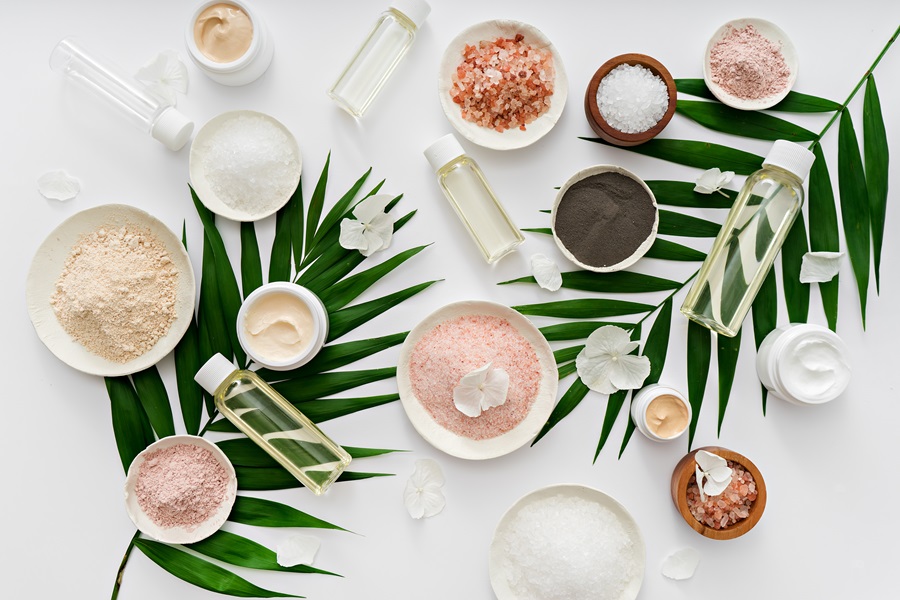SGS, the world’s leading testing, inspection, and certification company, supports the cosmetics industry in meeting the changing demands for eco-conscious beauty products with advanced testing solutions.
Sustainability is now a key concern in all industries, including the cosmetics and personal care sectors. Consumers increasingly prefer companies that consider the environmental impact of their products throughout the entire lifecycle—from sourcing ingredients and manufacturing processes to packaging, use and disposal. In competitive markets, embracing a sustainable approach is not only beneficial for the planet, but it also builds competitive advantage.
Manufacturers and suppliers should consider the following:
– Sustainable sourced ingredients derived from renewable resources with a low carbon footprint, including natural substances and the avoidance of harmful chemicals
– Eco-friendly packaging that is compostable, recyclable and made from recycled and/or biodegradable materials
– Conserving water through recycling and reuse during manufacturing and developing formulations that limit water usage
– Efficient waste management strategies that enable ‘reduce, reuse and recycle’ throughout the product’s lifecycle
To gain maximum commercial advantage, businesses must provide clear and honest communication about the sustainability of their products to consumers.
SGS provides a comprehensive suite of testing services to ensure regulatory compliance and accurately evaluate a product’s sustainability claims, covering:
– Safety – to ensure a product is free from prohibited substances like formaldehyde, heavy metals, allergens, phthalates, pesticides and endocrine disruptors
– Natural ingredients – certification that a product contains natural and/or organic ingredients, free of synthetic fragrances. Advanced techniques like droplet digital PCR (ddPCR) can be used to verify non-GMO status, with product certifications like IGENTM confirming authenticity
– Biodegradability – scientific testing to determine the breakdown rate of materials by microorganisms, particularly important for cosmetics that may be rinsed into water systems. The OECD 301 test series helps determine a percentage biodegradation value, where a product is considered biodegradable if it breaks down by at least 60% in 28 days under the specific parameters of the test
– Ecotoxicity – evaluates the potential environmental harm of products and ingredients, including their effects on aquatic life, soil ecosystems, and wastewater treatment processes. Tests like OECD 236 (acute toxicity) and REEFTOX (impact on coral reefs) assess both immediate and long-term ecological effects
– Microplastics and PFAS – regulatory pressure over these particles and substances is growing, requiring sophisticated solutions such as light microscopy, Fourier-transform infrared spectroscopy (FTIR) and scanning electron microscope/energy-dispersive X-ray spectroscopy (SEM/EDX) being used to detect their presence
Since there is a commercial advantage in making claims around reduced environmental impact in eco-conscious beauty markets, there is also the risk of ‘greenwashing.’
SGS enables companies to avoid greenwashing through robust and trusted testing and certification solutions that validate the authenticity of their environmental claims. These solutions not only foster consumer trust but also ensure compliance with evolving regulatory frameworks, such as the upcoming EU Green Claims Directive set to take effect in 2026. By staying at the forefront of sustainability testing in the cosmetics and hygiene sectors, SGS offers comprehensive services that empower brands to confidently showcase their eco-friendly practices and differentiate themselves in an increasingly environmentally conscious market.
Learn more about SGS’s comprehensive testing solutions for cosmetics and hygiene products.
For further information contact:
Sugarloaf Marketing
ruth@sugarloafmarketing.com
01892 711240
About SGS
We are SGS – the world’s leading testing, inspection and certification company. We are recognized as the global benchmark for sustainability, quality and integrity. Our 99,600 employees operate a network of 2,600 offices and laboratories around the world.

